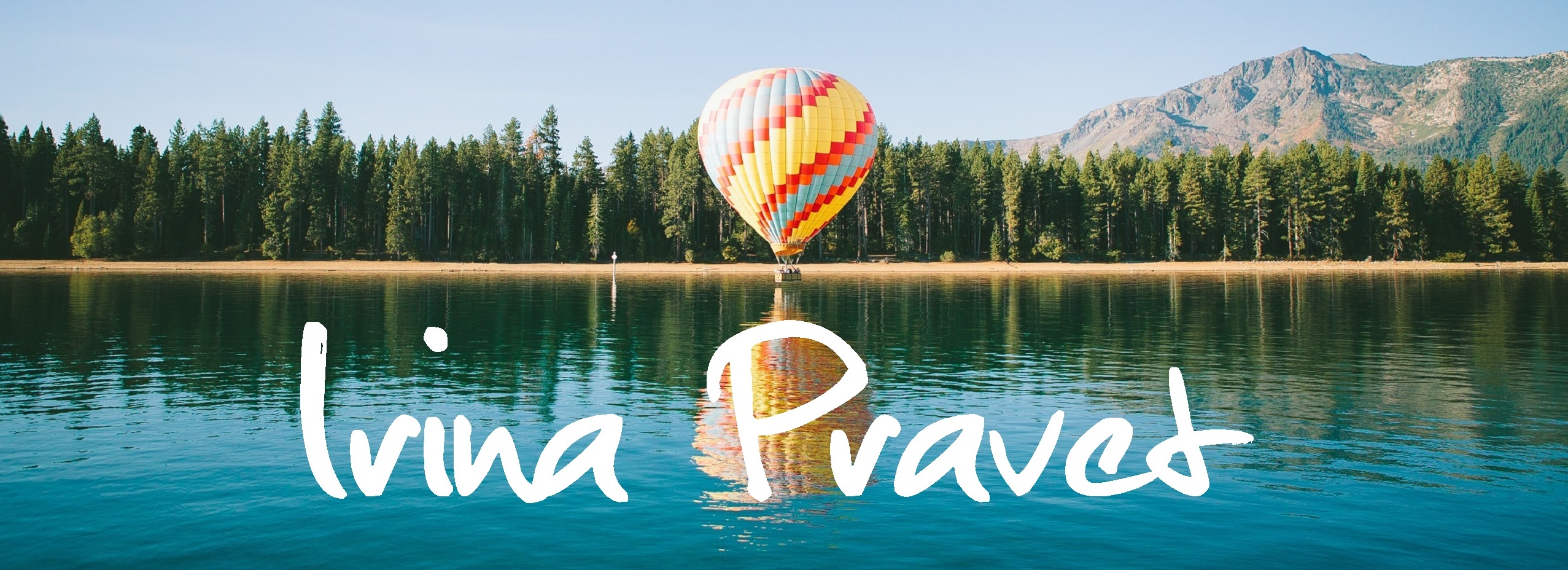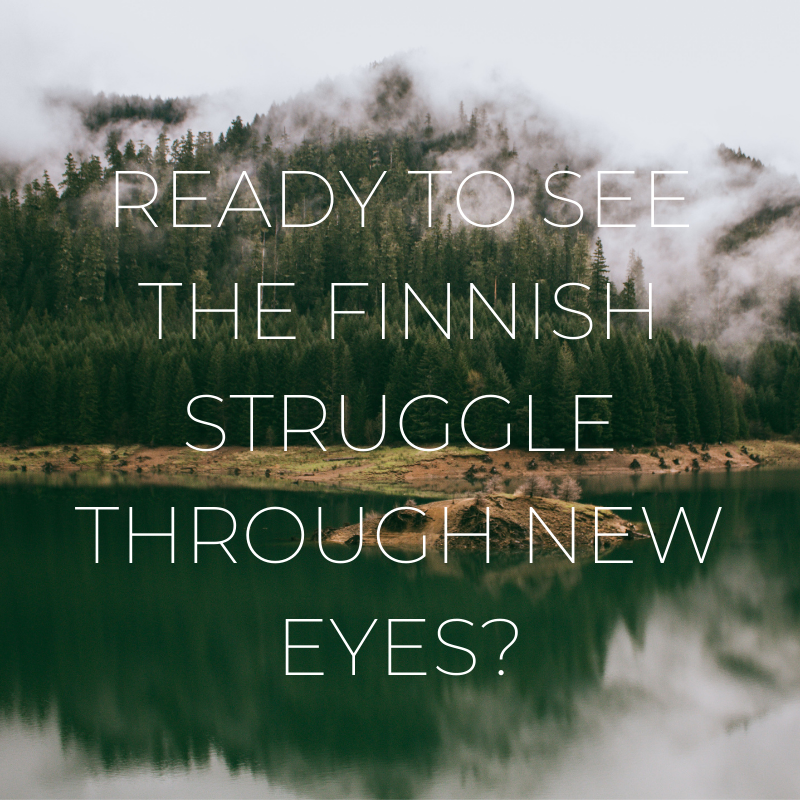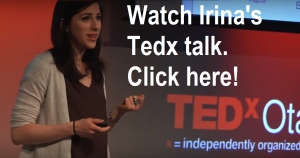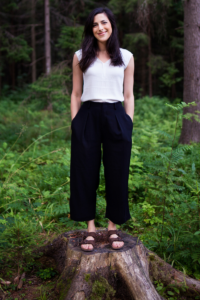I’m a firm believer that each and every one of us creates our own reality – including the things which hold us back. From the joy to the discomfort we experience abroad, and everything in between. We do so with our thoughts, and our amazingly sophisticated brains, with which we can imagine absolutely anything. Then our bodies follow suit and behave as if what we have imagined is real. As the saying goes:
With great power, comes great responsibility.
This has the potential to greatly enrich our lives, and it also has the potential to severely limit us.

Use this simple exercise to test out the idea*
In your mind’s eye or miming with your eyes open: imagine you have a big lemon in your hand. Look at it and get ready to take a bite. Imagine yourself sinking your teeth into this lemon, chewing it and holding it in your mouth. What does it smell like? What does it taste like.
What do you notice? Are you salivating more than you were before? Your thoughts just prompted your body to increase the production of saliva in your mouth. Isn’t that amazing?
What kind of beliefs are we talking about?
When it comes to lemons, more saliva isn’t really a problem. But when we believe something about ourselves that holds us back, then we start to reach our limits. We spin around in circles. We suffer because of a limiting reality we’ve imposed in our minds.
These beliefs can lie deeply rooted in our subconscious and determine how we show up in the world. The biggest thing they usually do is keep us trapped in a world-view that keeps us from moving forward. In Pratt and Lambrou’s Code to Joy, we discover the 7 most common self-limiting beliefs, and spin-offs of which keep us from joy, ease and growth in our lives. They are:
- I am not safe.
- I am worthless.
- I am powerless.
- I am not lovable.
- I cannot trust anyone.
- I am bad.
- I am alone.
The good news is that just as we’ve imagined the lemon, and we can make it appear and disappear at will, we can also imagine new solutions. (You can find the book here for a deeper exploration of how to do this.) But for that to happen, we first need to open up to a new possibility for our self-directed reality…
When our beliefs are challenged, we feel discomfort
Sometimes the mere presence of a person or event in our lives challenges the very notion of the beliefs we’ve come to accept as our reality. In psychology, they call this ‘cognitive dissonance’ (dissonance literally meaning ‘a lack of harmony’). This causes discomfort. Humans don’t like discomfort, nor disharmony. I’m sure you’ll recognize the feeling from the following definition:
According to cognitive dissonance theory, there is a tendency for individuals to seek consistency among their cognitions (i.e., beliefs, opinions). When there is an inconsistency between attitudes or behaviors (dissonance), something must change to eliminate the dissonance.
But we’re not just slaves to our tendencies. We always have choices. In this case, when our beliefs are challenged, we have approximately two choices:
- we can reject the person/event/thing as an outlier, a special case.
- Actively, we can blame or shame or actively deny that this is possible.
- Passively, we can just forget all about it since it doesn’t filter into our view of ‘Things That Make Sense.’
- Or we can accept the limitations of our worldview, and expand it.
In the first case, we seek to eliminate the discomfort, the dissonance, and gravitate back to the feeling of comfort in believing that we know all that there is to know about how the world works.
In the second case, we accept discomfort and actively seek to maintain the dissonance. We don’t try to integrate it into our worldview. Instead, we try to upgrade our worldview. Obviously, this is uncomfortable. Your worldview is the foundation on which everything lies! But when you stop resisting this discomfort (which I experienced just the other day) lies hidden an almost euphoric feeling… an exciting buzz of what lies beyond your current reality…!
Living abroad will challenge most, if not all, of your beliefs
Living abroad has a quirky way of helping us bump up against the limitations of our worldview, seemingly all at the same time. We can choose to desperately cling to that which we ‘know’ to be true. Oftentimes we do this for awhile until it becomes unbearable and there’s a visible toll on us. Or can we choose, as many of us eventually do, to surrender.
As much as we might resist it at first, this is a beautiful gift. An opportunity.
Surrender to new ways of seeing things. Surrender to new ways of doing things. Surrender to the possibility that the world is so much more than you thought it was.
For me this has meant (by no means a complete list): new ways of connecting to people, new ways of expressing and accepting kindness and politeness, and an entirely new language and script through which to communicate with others! Finnish: it’s a completely new system of thinking that’s full of space to sow new beliefs.
But there’s a trade-off… this process requires a complete surrender and an openness to healing old wounds, mending self-limiting beliefs, and no longer blaming others for limitations that are self-imposed. Surrender is not quitting, though it does involve abandoning what’s not working. Surrendering is an opening…
In actively surrendering, we are transformed.
So I ask you…
- In which areas of your life do you find yourself spinning around in circles or feeling unsatisfied?
- Especially in the above areas, which people/things/events’ simple presence in your life are challenging your worldview? (Whether through active anger, frustration or blatant dismissal)
- Which of the 7 beliefs stand out as shadows that lurk in the crevices of your mind?
- How can you cultivate more inner strength to stick through the discomfort of upgrading your worldview (and experience all the new opportunities that worldview has to offer)?
*Special thanks for the inspiration in this post are owed to Anna, Timo, Jeff and Marisa Peer for the lemon example.



